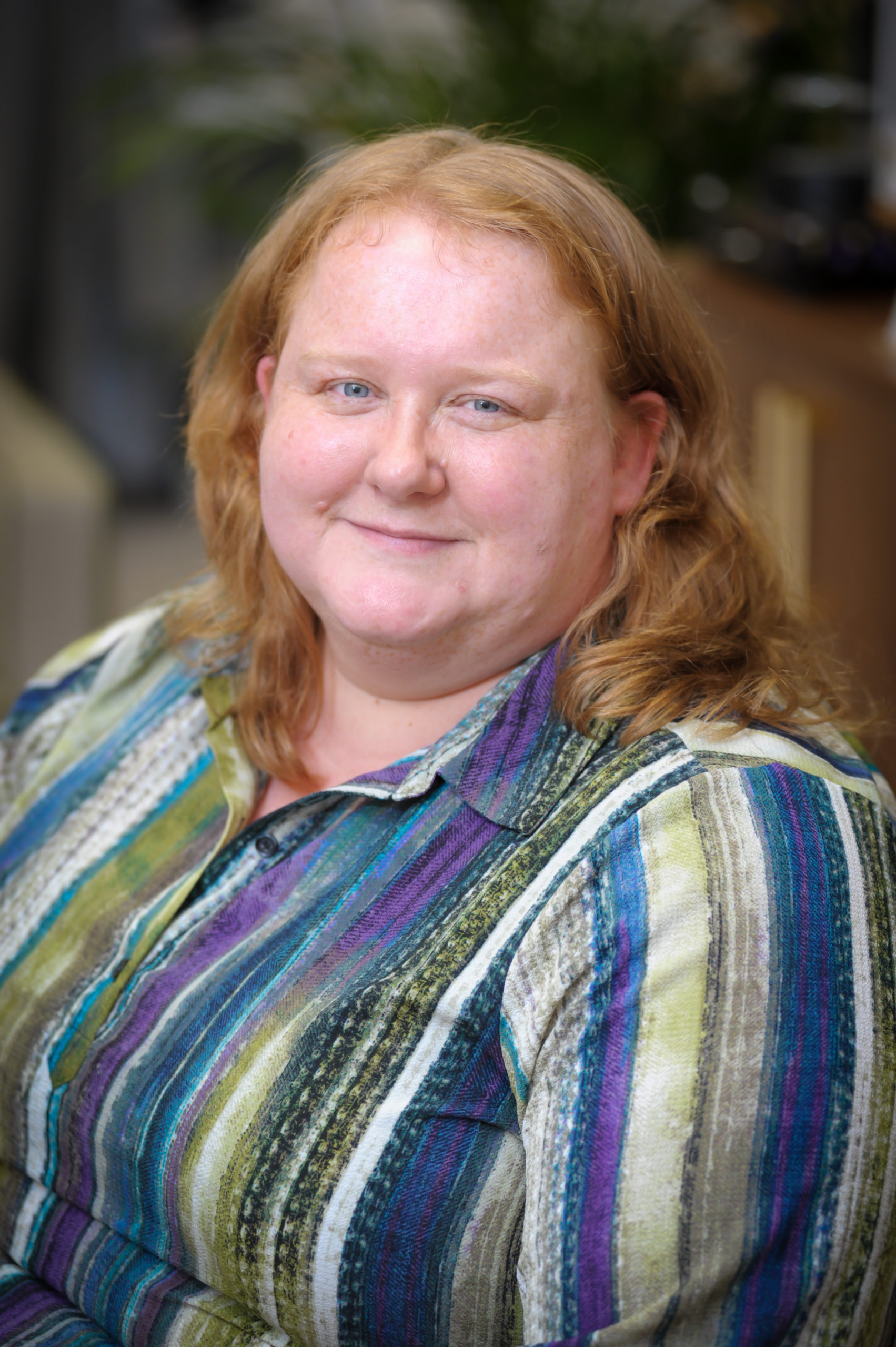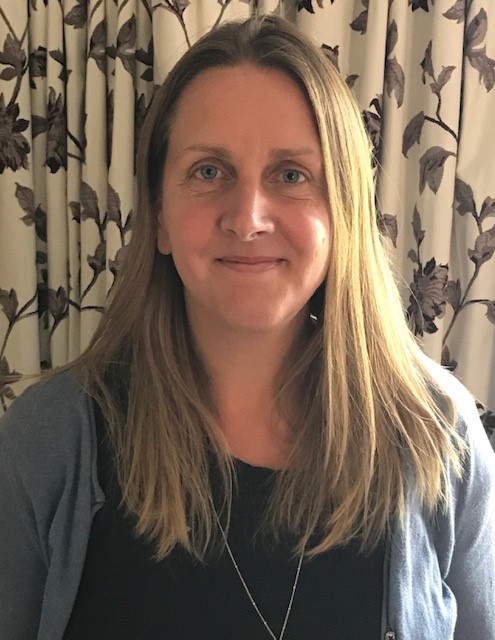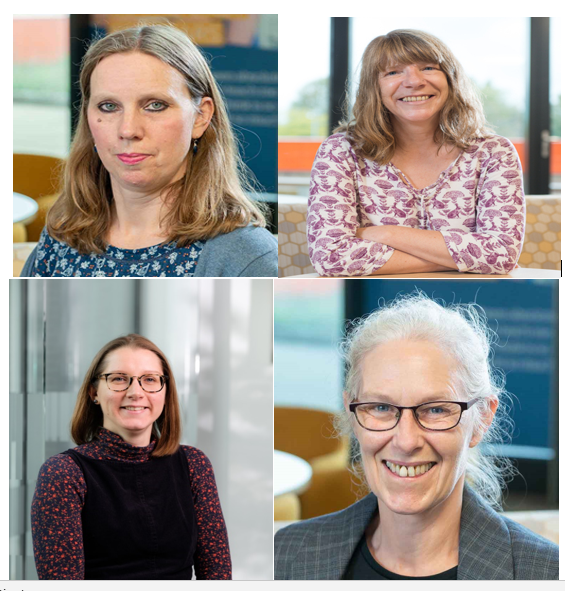Guest Blog

ENRICHEnabling Research in Care Homes
GUEST BLOG
Welcome to the ENRICH guest blog
Read the real-life experiences of people involved in care home research.
Anyone with a story or advice they'd like to share is encouraged to make contact using the contact us page.
Read about current news and developments for care homes research in the new posts section.
The NICHE-Leeds Engaged Family and Friends Panel launch; increasing family involvement in a care and science partnership
Amy Hunter is a Registered Nurse and an essential care giver for a relative living in a care home in Leeds. Amy has both a personal and professional interest in enhancing the quality of life and care in care homes, and in this blog she shares her thoughts and experience of the NICHE-Leeds Engaged Family and Friends Panel launch.
Nurturing Innovation in Care Homes in Leeds (NICHE-Leeds) is a partnership which aims to enhance the lives of people living or working in (or visiting) care homes (https://niche.leeds.ac.uk/). Commencing in 2018, it is a partnership between the University of Leeds, Westward Care, Springfield Healthcare, Leeds Care Association, and Leeds City Council. NICHE-Leeds replicates a model first developed in the Netherlands (https://www.maastrichtuniversity.nl/news/living-lab-ageing-and-long-term-care-unique-selling-point-um). At the heart of NICHE-Leeds is a belief that all people in care homes should experience quality of care and quality of life. This is challenging but can be addressed through partnership and collaborative working which brings together care providers, scientists and importantly residents and their family and friends. Together questions can be asked, and sustainable solutions offered.
Getting closer to the action: the researcher in residence
Isabelle Latham is researcher-in-residence at Hallmark Care Homes. She has 25 years experience working with the social care sector, beginning her career as a care worker and moving on to specialise in safeguarding and training frontline care staff. Previous to joining Hallmark Care Homes in 2022, Isabelle led care homes research and education for the Association for Dementia Studies at the University of Worcester for 10 years. She gained her PhD in dementia care in 2019, exploring how care workers learned to care for people living with dementia in care homes.
This blog describes the new role of “Researcher in Residence” created for Hallmark Care Homes. It was inspired by the successful CHARM research which showed that embedding academic researchers in care homes, working alongside staff and residents to develop their own ideas and projects could help improve research participation and outcomes.
Tell Me More care home engagement project
Suzy Webster is the Care Home Network Manager at Age Cymru. She has led on the Tell Me More project over the last 18 months.
In this blog Suzy will introduce the Tell Me More engagement project. This project was funded by Welsh Government and aimed to gather insights into the lived experience of care home residents during the Covid-19.
How can we improve quality of life at work for the social care workforce?
Ann-Marie Towers is a Reader in Social Care at the University of Kent and leads an international programme of research to develop and test the Adult Social Care Outcomes Toolkit (ASCOT), an outcomes measure used internationally in research and evaluation. She is a collaborator for the NIHR Research Design Service South East (RDS-SE), a funding panel member for the NIHR Research for Social Care programme and is on the editorial board for the journal of Primary Health Care Research and Development.
This blog post discusses the important issue of quality of life at work for the social care workforce. It draws on an NIHR study to begin developing a scale of work-related quality of life for adult social care staff and refers to a Sector Guide, co-produced with members of the public with lived-experience of adult social care and representatives of the social care sector.
Notes on anticipatory prescribing and philosophies of care, a dissertation in the works
Megha Majumder is a PhD candidate in the Palliative and End of Life Care Group at the University of Cambridge. Her research focuses on end-of-life medicines in relation to a deeply vulnerable population in the UK: care home residents. She is as passionate about quality of death as she is quality of life, and cares a great deal about addressing issues in access to care among marginalized patient groups.
In this guest blog Megha provides us with an update on her previous blog which introduced her care home PhD study.
For my PhD, I’ve focused my research on a very special area within palliative and end of life care – anticipatory prescribing (AP) in care homes. After interviewing more than forty UK-based professionals in health and social care, I’m now writing a few chapters for my dissertation chronicling the burdens they experience during the AP process, the bureaucracy and networks inherent to AP, the language that professionals deploy in describing AP to one another (and how that differs when talking to residents and their families), and decision-making at the point of prescribing and administration (as well as the risks that accompany both processes). It has been a wondrous, challenging experience, learning from and writing about the people who not only work in the spaces that so many prefer to not think about, but who go so far beyond the call of duty to see them and their residents improve. I hope that this research can contribute to our understanding of the issues affecting care homes and build an evidence-based foundation upon which policymakers can create solutions.
Addressing the Communication needs of Care Home Residents with Hearing Loss and Dementia
Hannah is a PhD student at the Manchester Centre for Audiology and Deafness (ManCAD), University of Manchester. She has also worked as a care assistant in care homes supporting people living with dementia. Her PhD project is funded by the Alzheimer’s Society and focuses on improving the communication abilities and wellbeing of residents with dementia and hearing loss.
This blogpost discusses some of the difficulties experienced by care home residents with hearing loss and dementia and the importance of an individualised, flexible approach. This work is drawn from studies conducted as part of Hannah’s PhD, but is also influenced by experiences when caring for residents with dementia and hearing loss.
NIHR – Improving the quality of care in care homes: what does the evidence tell us?
Candace Imison - NIHR Centre for Engagement and Dissemination
In this guest blog Candace Imison, from the NIHR Centre for Engagement and Dissemination, speaks about a recently published collection that brings together NIHR-funded research in care homes and asks how this research could be used to improve the quality of care.
Caring from a Distance: how informal carers stay in touch with care home residents. Lessons from experiences during the COVID-19 pandemic.
Caroline White is a Research Associate, with a background in Social Work. Jane Wray is a Senior Lecturer in Nursing, and Director of Research. Emma Wolverson is a Senior Lecturer in Ageing and Dementia, and a Clinical Psychologist working in dementia services. Clare Whitfield is a Lecturer in Nursing. All authors are based within the Faculty of Health Sciences, University of Hull.
This study explored the experiences of informal carers (family and friends) of staying in touch with care home residents (older people, people with dementia, people with learning disabilities and/or autism, and disabled people), during the COVID-19 pandemic. The study aimed to identify what worked well, as well as difficulties and challenges, and to learn lessons for the future, and for other situations when informal carers might experience difficulties in visiting frequently.
Following the ENRICH model for Home Care?
Louise Marsh is a Research Associate and Health and Social Care practitioner. She has over 40 years experience in nursing and social work in the specialism of older people. Louise also established a registered Charity in 2005, the Evergreen Care Trust, supporting older and vulnerable adults with services and interventions through the voluntary and not for profit sector.
Health and Social care practitioner Louise Marsh looks at the ENRICH Enabling Research In Care Homes model and suggests that this could provide guidance and inspiration for a potential multi – Clinical Research Network CRN working party looking at establishing a similar research platform for home care providers.
Louise asks the following questions:
- How does Social Care research translate in both care home and home care forums?
- What are the challenges in embracing Social Care research?
- What might it take to authentically, broaden both Health and Social Care research through these sectors?
Taking part in research – A General Manager’s Experience
Charlotte Gilbert is a General Manager at Brendoncare Knightwood, a residential care home in Hampshire.
I started my career in care at the age of 16 as a care assistant. I began working for Brendoncare at the age of 18. As an organisation they have supported me to work in various different settings such as nursing care, dementia care, residential and domiciliary care. They have encouraged me to progress in my career, securing my current role as a General Manager (I am 30). I am now studying for a level 7 Master’s degree and recently took part in a research project developing a training programme for care home staff. I am a passionate advocate for elderly care with a strong focus on end-of-life care.
In this blog I will provide a brief insight into what working in care is like for me and my experience of taking part in a research project.









